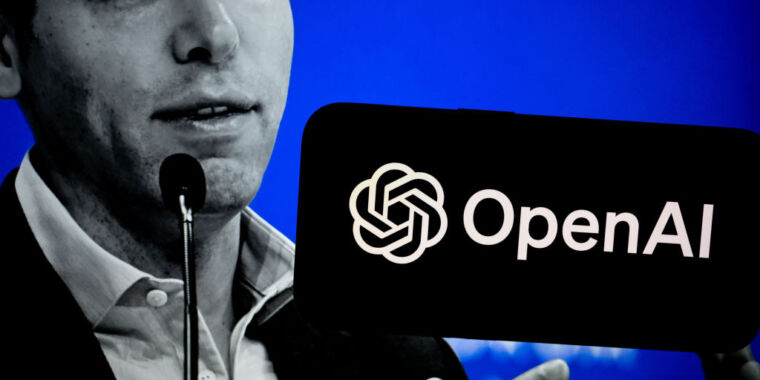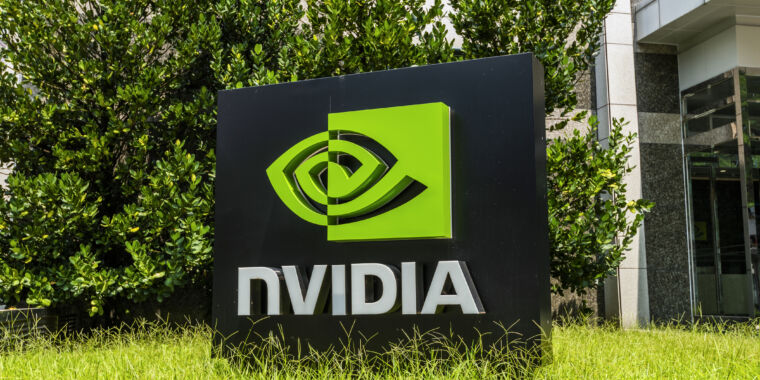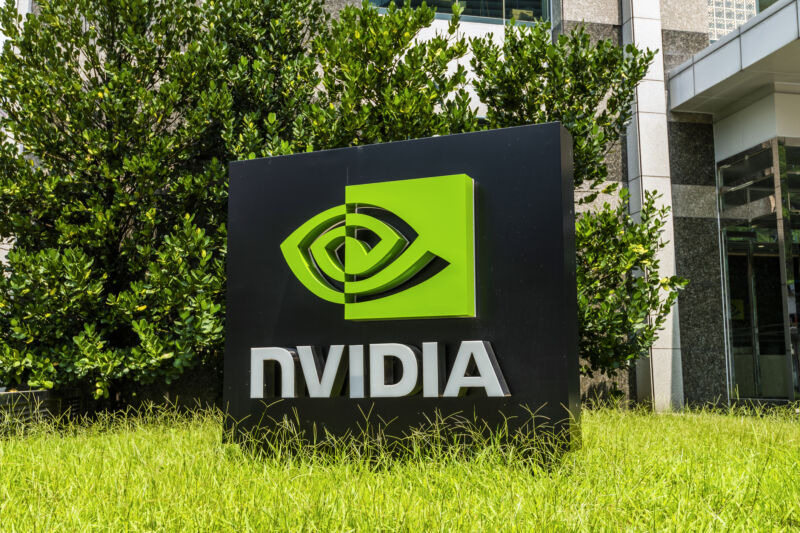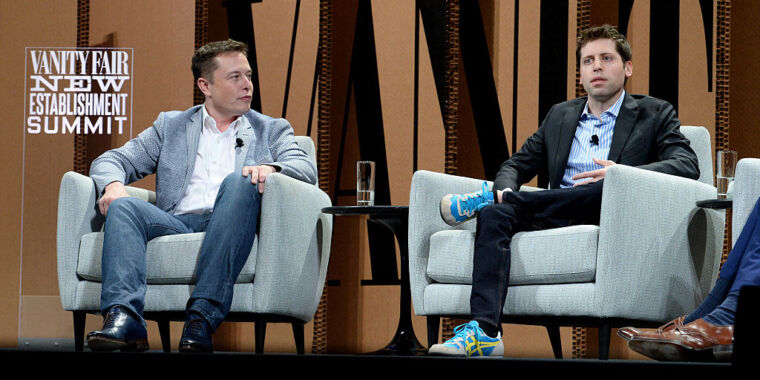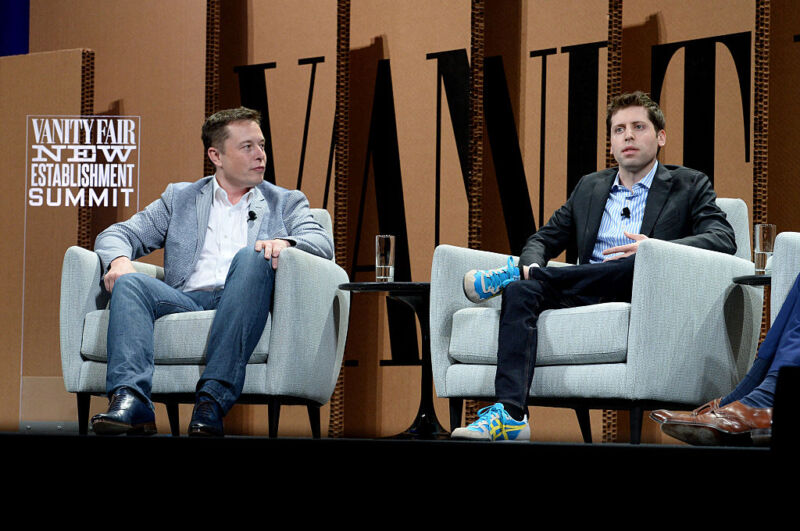OpenAI asked US to approve energy-guzzling 5GW data centers, report says
Great scott! —
OpenAI stokes China fears to woo US approvals for huge data centers, report says.
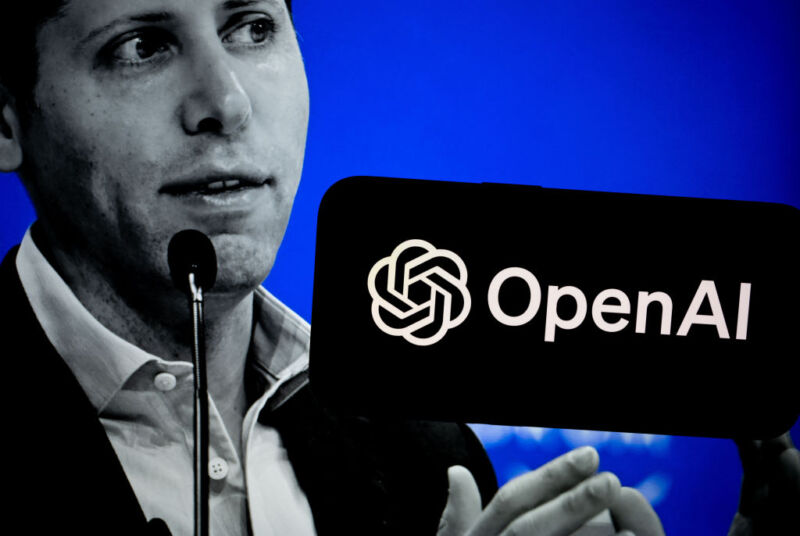
OpenAI hopes to convince the White House to approve a sprawling plan that would place 5-gigawatt AI data centers in different US cities, Bloomberg reports.
The AI company’s CEO, Sam Altman, supposedly pitched the plan after a recent meeting with the Biden administration where stakeholders discussed AI infrastructure needs. Bloomberg reviewed an OpenAI document outlining the plan, reporting that 5 gigawatts “is roughly the equivalent of five nuclear reactors” and warning that each data center will likely require “more energy than is used to power an entire city or about 3 million homes.”
According to OpenAI, the US needs these massive data centers to expand AI capabilities domestically, protect national security, and effectively compete with China. If approved, the data centers would generate “thousands of new jobs,” OpenAI’s document promised, and help cement the US as an AI leader globally.
But the energy demand is so enormous that OpenAI told officials that the “US needs policies that support greater data center capacity,” or else the US could fall behind other countries in AI development, the document said.
Energy executives told Bloomberg that “powering even a single 5-gigawatt data center would be a challenge,” as power projects nationwide are already “facing delays due to long wait times to connect to grids, permitting delays, supply chain issues, and labor shortages.” Most likely, OpenAI’s data centers wouldn’t rely entirely on the grid, though, instead requiring a “mix of new wind and solar farms, battery storage and a connection to the grid,” John Ketchum, CEO of NextEra Energy Inc, told Bloomberg.
That’s a big problem for OpenAI, since one energy executive, Constellation Energy Corp. CEO Joe Dominguez, told Bloomberg that he’s heard that OpenAI wants to build five to seven data centers. “As an engineer,” Dominguez said he doesn’t think that OpenAI’s plan is “feasible” and would seemingly take more time than needed to address current national security risks as US-China tensions worsen.
OpenAI may be hoping to avoid delays and cut the lines—if the White House approves the company’s ambitious data center plan. For now, a person familiar with OpenAI’s plan told Bloomberg that OpenAI is focused on launching a single data center before expanding the project to “various US cities.”
Bloomberg’s report comes after OpenAI’s chief investor, Microsoft, announced a 20-year deal with Constellation to re-open Pennsylvania’s shuttered Three Mile Island nuclear plant to provide a new energy source for data centers powering AI development and other technologies. But even if that deal is approved by regulators, the resulting energy supply that Microsoft could access—roughly 835 megawatts (0.835 gigawatts) of energy generation, which is enough to power approximately 800,000 homes—is still more than five times less than OpenAI’s 5-gigawatt demand for its data centers.
Ketchum told Bloomberg that it’s easier to find a US site for a 1-gigawatt data center, but locating a site for a 5-gigawatt facility would likely be a bigger challenge. Notably, Amazon recently bought a $650 million nuclear-powered data center in Pennsylvania with a 2.5-gigawatt capacity. At the meeting with the Biden administration, OpenAI suggested opening large-scale data centers in Wisconsin, California, Texas, and Pennsylvania, a source familiar with the matter told CNBC.
During that meeting, the Biden administration confirmed that developing large-scale AI data centers is a priority, announcing “a new Task Force on AI Datacenter Infrastructure to coordinate policy across government.” OpenAI seems to be trying to get the task force’s attention early on, outlining in the document that Bloomberg reviewed the national security and economic benefits its data centers could provide for the US.
In a statement to Bloomberg, OpenAI’s spokesperson said that “OpenAI is actively working to strengthen AI infrastructure in the US, which we believe is critical to keeping America at the forefront of global innovation, boosting reindustrialization across the country, and making AI’s benefits accessible to everyone.”
Big Tech companies and AI startups will likely continue pressuring officials to approve data center expansions, as well as new kinds of nuclear reactors as the AI explosion globally continues. Goldman Sachs estimated that “data center power demand will grow 160 percent by 2030.” To ensure power supplies for its AI, according to the tech news site Freethink, Microsoft has even been training AI to draft all the documents needed for proposals to secure government approvals for nuclear plants to power AI data centers.
OpenAI asked US to approve energy-guzzling 5GW data centers, report says Read More »
